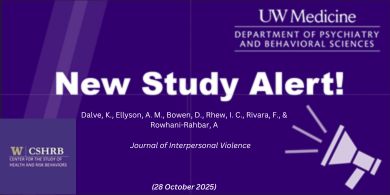













This webinar is part of the Race, Equity and Social Justice Call-to-Action Series presented by the Harborview Behavioral Health Institute on January 29 from 10 - 11:30 AM. Register here: bit.ly/4bujE2m

This webinar is part of the Race, Equity and Social Justice Call-to-Action Series presented by the Harborview Behavioral Health Institute on January 29 from 10 - 11:30 AM. Register here: bit.ly/4bujE2m







www.dtnext.in/edit/mental-...
www.dtnext.in/edit/mental-...




